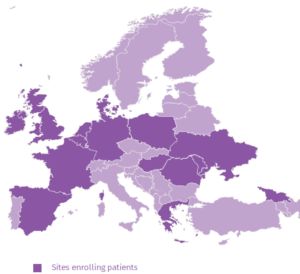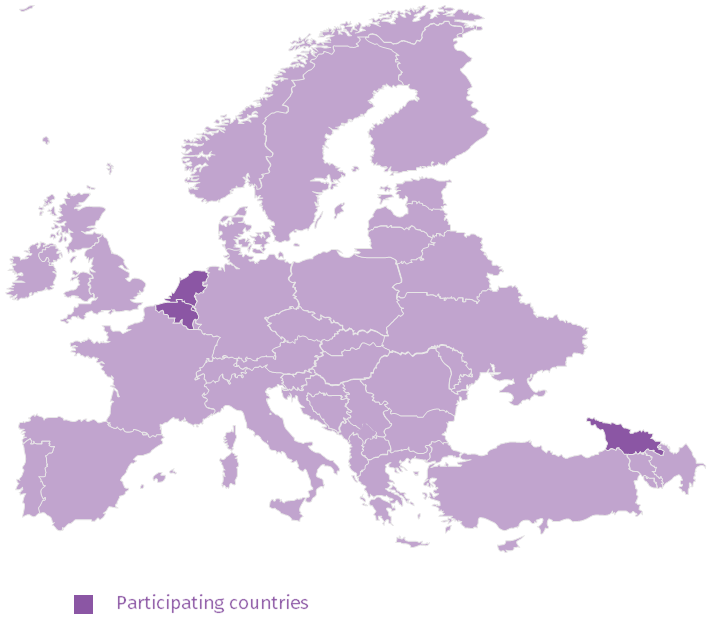Primary Care Studies
Primary care is defined as day-to-day healthcare given by a healthcare provider, typically as the first contact and principle point of care.
This research is crucial to generate evidence about milder COVID-19, describing the complete disease spectrum, as well as to track the progress and impact of the disease. Our research aims to contribute to informing the planning, policy, communication and clinical management of the COVID-19 pandemic.

Primary Care Studies Team
When a new infection emerges, early information generally comes from severe and/or hospitalized cases. This is the case in the COVID-19 pandemic. Initially, only patients that are at high-risk of infection or are in the hospital are described and tested for the disease. As a consequence, limited information is available from patients with milder, or undiagnosed disease, who are never hospitalised. The majority of affected people have milder symptoms and present in primary care with their general practitioner (GP), either at the practice or by telephone. Their monitoring and treatment is done by GPs working in the community.
There is still much uncertainty about who are at greater risk of acquiring the infection and who is at risk for severe complications. Therefore, we need clinical information from primary care where patients are seen at the start of having symptoms, in order to improve our management of COVID-19.
The primary care studies are divided into three different study parts:

Running in parallel to the primary care studies is a workstream of a qualitative work that will be carried out with healthcare professionals and patients from primary care sites to explore their perspectives on the pandemic.
Extended Point Prevalence Audit Survey (PPAS)
The Primary Care Study rapidly started capturing information from consultations and care provided to patients presenting in primary care with symptoms of community acquired-acute respiratory tract infection (CA-ARTI) during the COVID-19 pandemic. In this respect, the study team helped by having done a similar exercise in the winter period just prior to the start of the COVID-19 pandemic. This first point prevalence audit survey (PPAS) was done in January and February 2020, as part of VALUE-Dx WP4 work in 18 European countries.
 15 of these have participated, or are still participating in the current Extended PPAS: the Netherlands, Belgium, France, United Kingdom, Germany, Poland, Denmark, Georgia, Ukraine, Spain, Greece, Hungary, Moldova, Romania, and Ireland.
15 of these have participated, or are still participating in the current Extended PPAS: the Netherlands, Belgium, France, United Kingdom, Germany, Poland, Denmark, Georgia, Ukraine, Spain, Greece, Hungary, Moldova, Romania, and Ireland.
This study captures the characteristics of the consultation and the patients that present, as well as diagnostic tests performed (or wanted to be performed by GPs), and treatments and advice provided to the patients. GPs are also asked if for each consulting patient whether or not they suspect COVID-19, and how confident they are of their diagnosis and of the benefit for the patient from the treatment and/or advice they provided. As data are accumulating interesting differences between countries become apparent, as well as obviously with care provided to patients with CA-ARTI before the pandemic. Changes in antibiotic use and consulting patterns will be described, and the study will also allow for identifying and sharing of good practice. Since the beginning of May 2020, over 1700 consultations have been captured. For each country, a short overview of the results is generated as soon as they’ve reached their target of 240 consultations, which is combined with initial results from interview studies.
SOS COVID Study
SOS COVID (SARS-CoV-2 Observational Study of community acquired-acute respiratory tract infection during a time of widespread suspected COVID-19 in European primary care), is a prospective, observational study of acute respiratory tract infection in primary care settings across Europe. It is a further enhancement of the extended PPAS, as additional to the information captured from the consultation, the patients will be sampled (a combined throat and nose swab) to determine the aetiology of their illness, SARS-CoV-2 or another viral/bacterial infection.

Patients will be followed up to determine the following outcomes: duration of illness, non-productive days, impacts on daily life and complications, like pneumonia and hospitalisation.
With a full description of the illness spectrum and outcomes of COVID-19, the study aims to determine the risk factors of getting COVID-19 and for a complicated course of disease.
The study started in March 2020 and enrolled its first patients in the Netherlands on 14 April 2020 (see press release).







